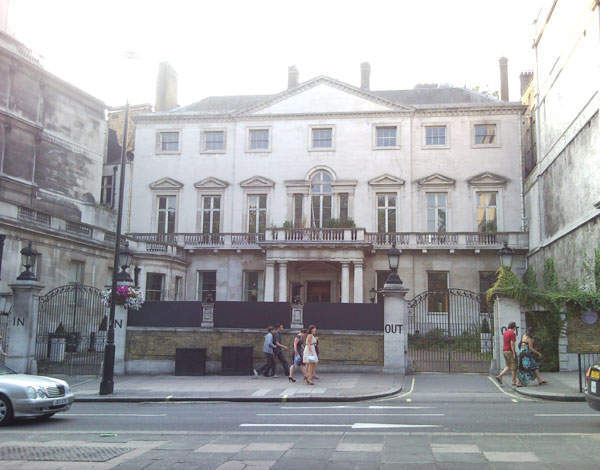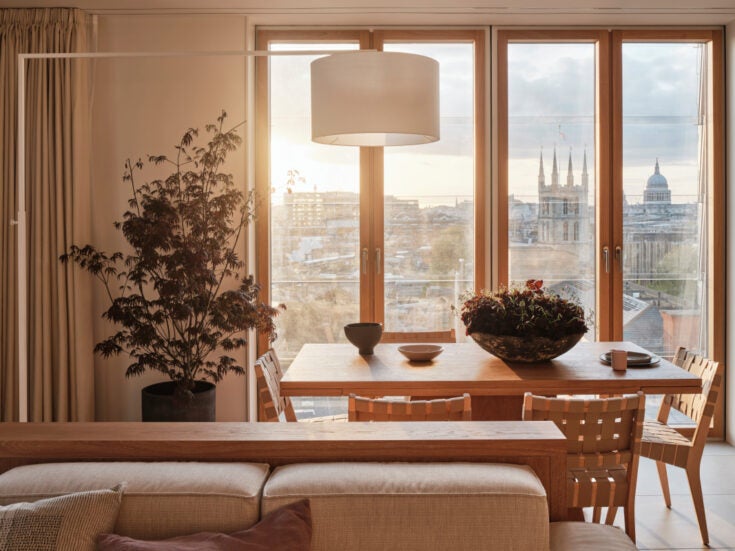

Would you leave your Ferrari out on the street for months on end, unused and gathering dust? Probably not. Yet that is effectively what a remarkable number of owners of prime property in London seem to be doing with it. According to a survey by the Evening Standard there are 740 properties in London worth over £5 million lying empty, neither with any residents nor with any building work going on.
If it were possible to squeeze a Mayfair mansion into a safety deposit box, that is what many owners would surely do. Never mind buy-to-let, in the prime London market buy-to-leave has become more fashionable. London property is being used as an asset class in which to speculate for capital gains, but opportunities to derive income from it are spurned.
Why? Because rental yields have sunk so low. According to Knight Frank, the average gross yield on a property in prime central London is down to just 2.84 per cent. Subtract the costs of renting out the property — including the greedier fees of letting agents — and you’ll be lucky to be left with 1 per cent.
Ever since the beginning of the buy-to-let boom in the late 1990s, there has been a tendency to exaggerate the returns. It is very easy to make the mistake of comparing the property yields quoted by estate agents with the yields on FTSE 250 shares quoted in the newspaper, without realising that while the former is almost certainly a gross yield the latter is net.
But the poor returns on property have become especially acute at the upper end due to rampant inflation in prices and subdued rents. Rents in the prime London market actually fell by 0.5 per cent in the year to March, according to Savills.
The same thing happened during the boom of the late 1990s and early 2000s: high property prices combined with static or falling rents. To a certain extent, property prices and rents are counter-cyclical: when people can buy property they are less inclined to rent and so demand falls.
Generally, however, the rental market is a lot less excitable than the property market. An entirely different psychology rules. People are often happy to pay what seems to them an extortionate price for a property, because they like to think they are buying into a rising market. ‘I was expecting to pay £1 million,’ they say to themselves, ‘and I have ended up paying £1.2 million — wow, that means that in a few months’ time my property will be worth £1.4 million.’
With renting, on the other hand, there is no warm glow to be derived from paying more than you were expecting to; paying over the odds to a landlord is just money wasted. As a result, while property prices tend to be linked to emotion, combined with the ease of obtaining finance, the rental market is governed much more by straightforward supply and demand.
The result is a disparity in the long-term trend between property prices and rents, resulting in the perverse incentive to buy property but not rent it out. We are back to where we were before shorthold tenancies were introduced in the late 1980s, when property-owners were reluctant to let surplus properties for fear they would be granting a tenant the right to stay for life, and so would not be able to gain vacant possession.
It is easy to see this trend continuing but for one thing: politics. It does not look good when hundreds of prime properties in the middle of London are lying empty at a time when there is a desperate shortage of property. Camden Council recently introduced a punitive council tax regime where properties which have been empty for more than two years must pay council tax 50 per cent higher than if occupied.
That can be assumed to be just the beginning. In the future you can expect more of this sort of thing. For the sake of 150 per cent council tax, many wealthy owners would surely just pay up and be done with it. But what if a really punitive regime were introduced, placing severe financial penalties on people who declined to let out unoccupied properties?
It might not reduce the attractiveness of London property as a safe haven for wealth, but one thing it would surely do is dump an awful lot of desirable properties suddenly on to the rental market, suppressing rents and yields still further. Posh property remains a buy if you are confident of continuing inflation in house prices — and that is a big question. But if you are investing for income, you can forget upmarket property. Indeed, you might do better with a student house or a cheap and nasty guest house in a fading seaside resort.
Pictured above: Derelict Cambridge House on Piccadilly, now bought and under development by the Reuben Brothers






